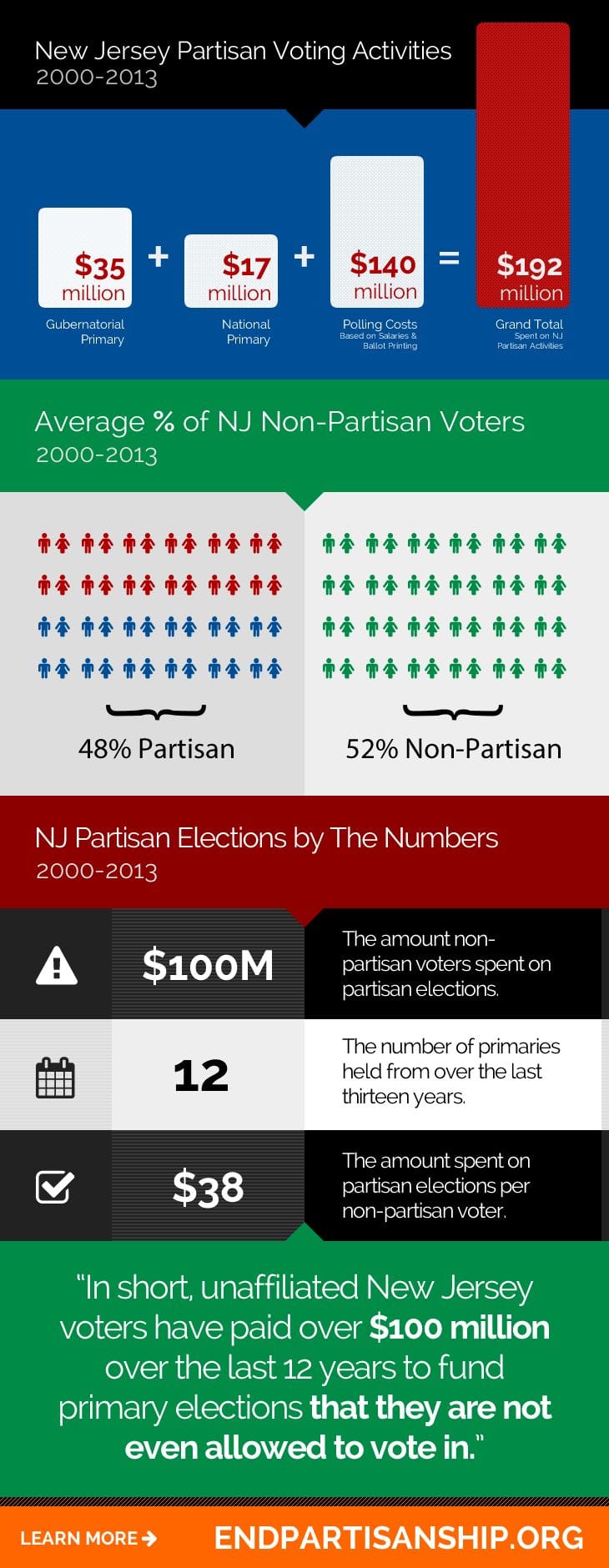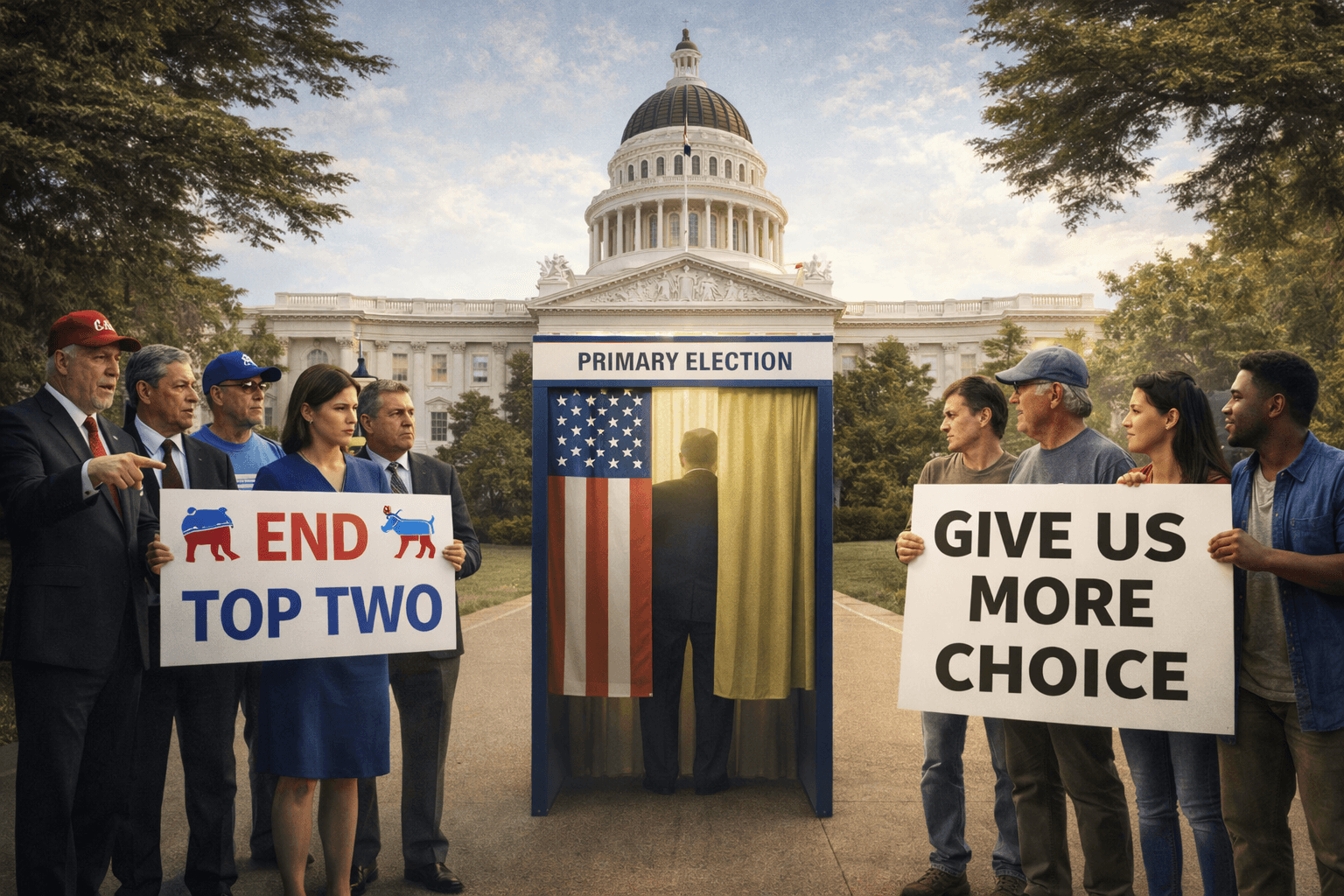NJ Voters Spend $100 Million on Elections They Can't Participate In
Public funding of political party activities is certainly not a new concept in the United States. In fact, the idea was floated as early as 1907 by President Theodore Roosevelt. However, electoral systems have evolved dramatically since President Roosevelt's time.
That evolution has created many concerns and questions which must be addressed. For example, why are voters subsidizing private political organizations though their taxes? Why is subscription to ideology-driven partisanship a prerequisite to exercising one's constitutional right to suffrage? And, how did those rights devolve to the point wherein over half of registered voters no longer have a voice?
New Jersey is just one of many states with a closed primary system, which means voters have to be registered with one of the major parties to participate in primary elections to select party candidates. Because political parties are private organizations and these elections are meant to select the candidates of political parties, primaries should be considered private activities funded with public dollars.
Financing political party activities is expensive, regardless of where the money comes from. However, using public funds to do so requires promotion of a fully accessible process for all those whose taxes are being utilized -- a fact that has been overlooked by states like New Jersey for decades.
New Jersey’s odd-year gubernatorial races increase primary frequency. Combined with national partisan primaries and convention delegate nominations, the state's taxpayers have spent a total of $192.6 million in the span of 13 years on these activities alone.
New Jersey is now requesting even more from it's electorate: ten dollars from each registered voter with which to fund private political activities, increasing the cost by an additional $49.6 million.
With dismal participation among the 5,459,925 registered voters, 386,039 of them predetermined the 2013 gubernatorial race. In essence, the future of New Jersey politics was determined by 7 percent of the state’s registered voters.
With an average of 52 percent, New Jersey has been in the top five states recording the highest number of
unaffiliated voters since the beginning of the 21st century. This means a majority of New Jersey voters are denied participation in elections they contribute millions of dollars a year to and yet have no say on which candidates will be on the general election ballot.
For more than 100 years, partisans have manipulated the electoral process to their benefit through gerrymandering and election laws, denying access to voters who exercise their right to non-association.
The activities of theses private organizations have taken a very heavy toll on the country. They have polarized citizens beyond civil discord and have created an environment so hostile and antagonistic that elected officials can no longer find any unifying position with which to manage the government, and they have created severe apathy in the process by limiting voter choice.
New Jersey is known for milestones in the political landscape. It was the first state in the Union to ratify the Bill of Rights and the third state to ratify the U.S. Constitution. However, unless deep changes are implemented in the state's election processes, including the vital need to remove barriers that deny voters full participation in state elections, New Jersey will certainly not achieve any milestones related to representative government for all its citizens.

Read all motions and court filings in the New Jersey lawsuit on the Independent Voter Project's website.






